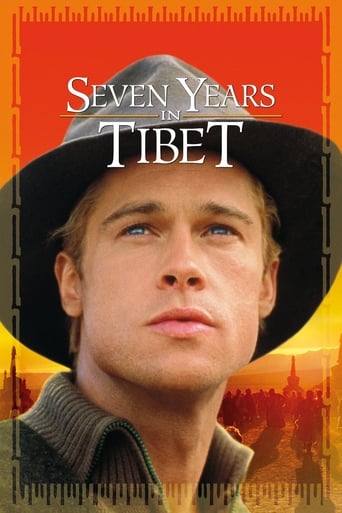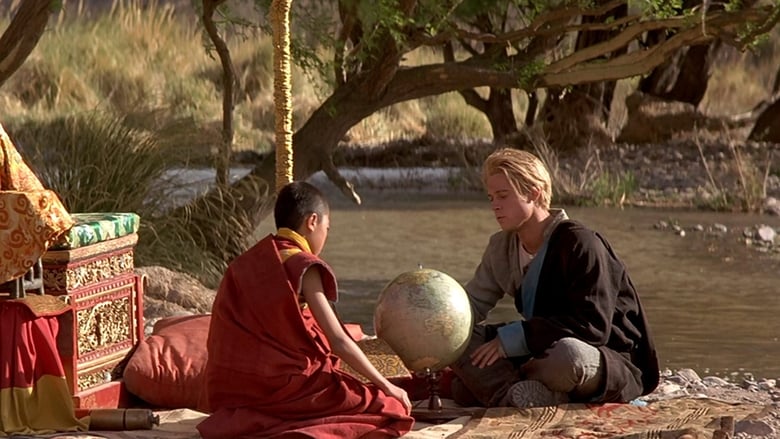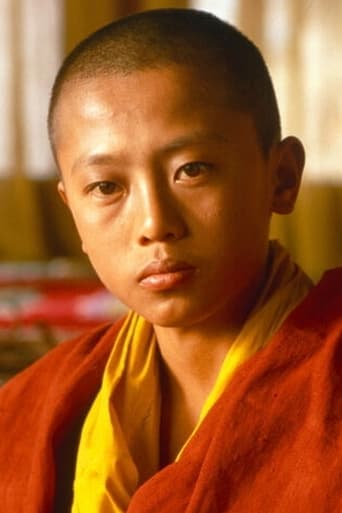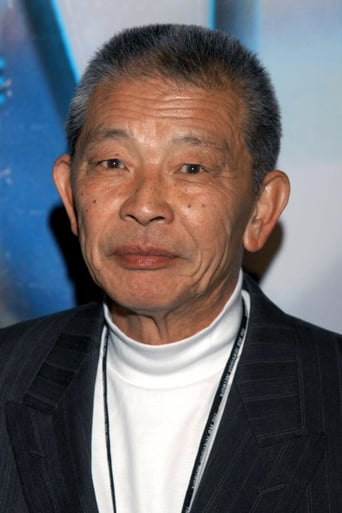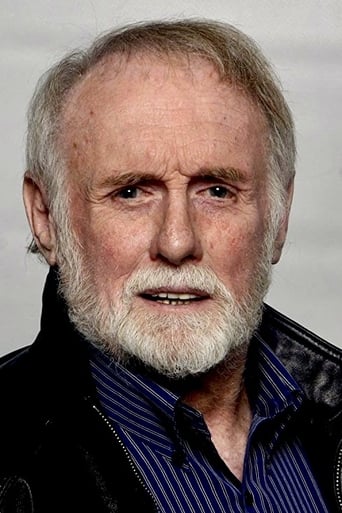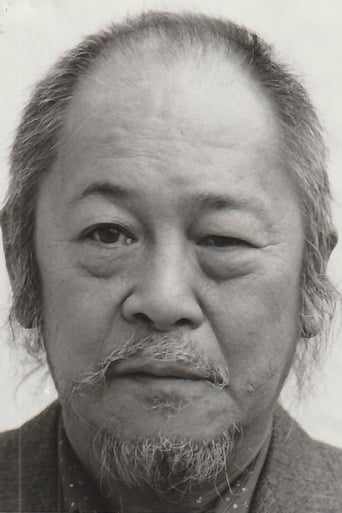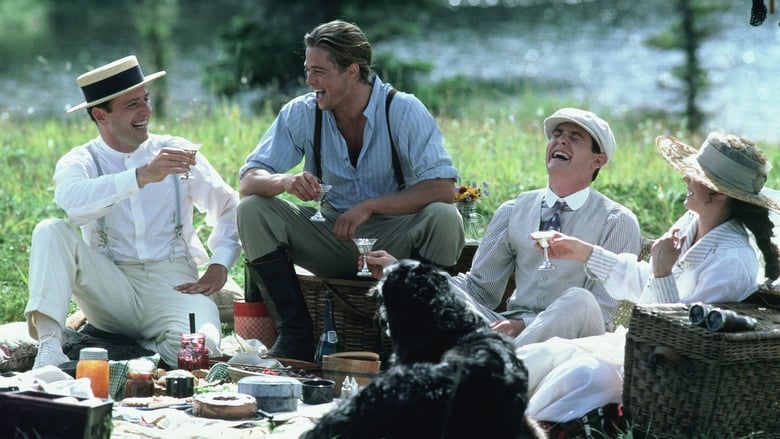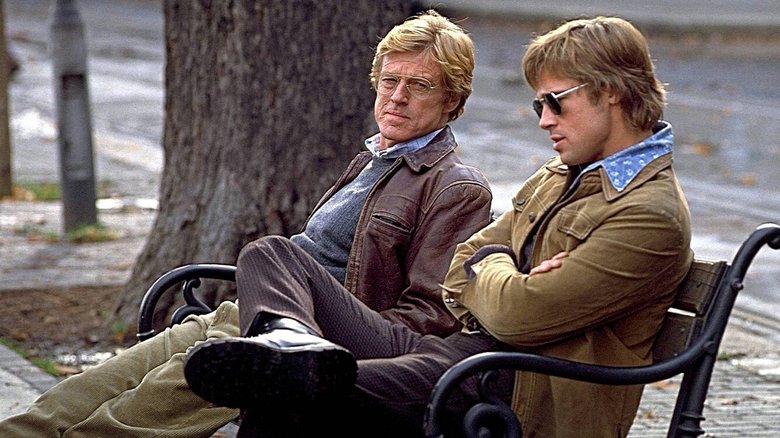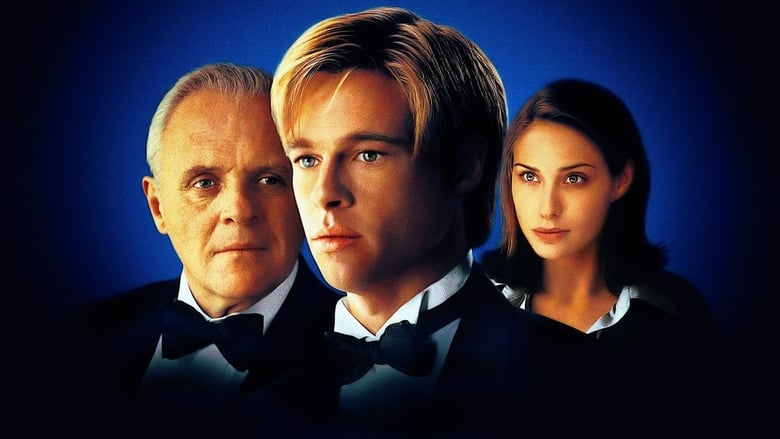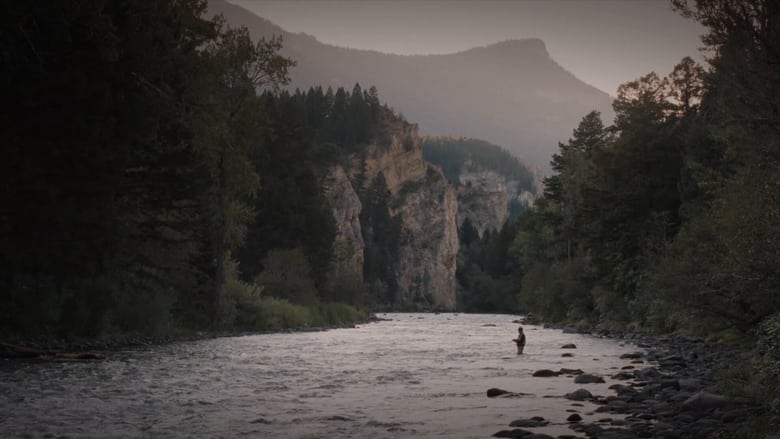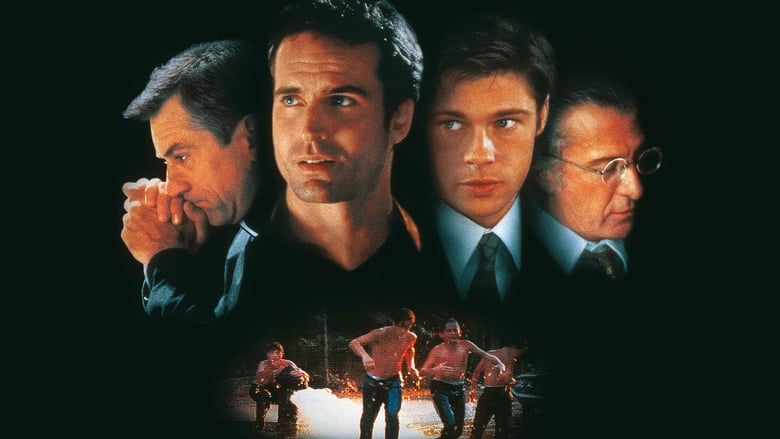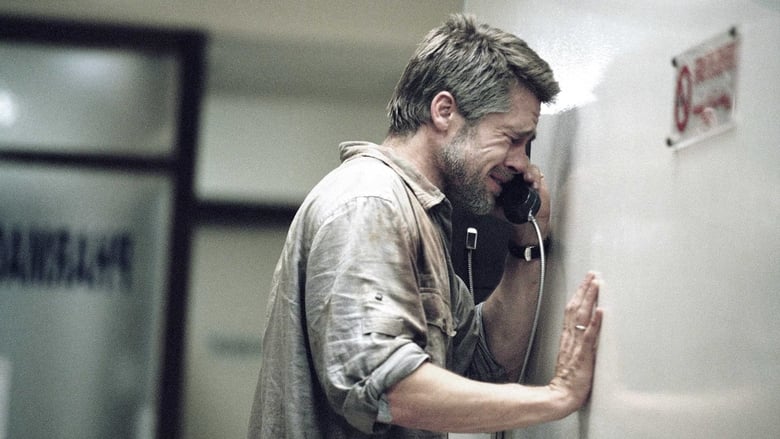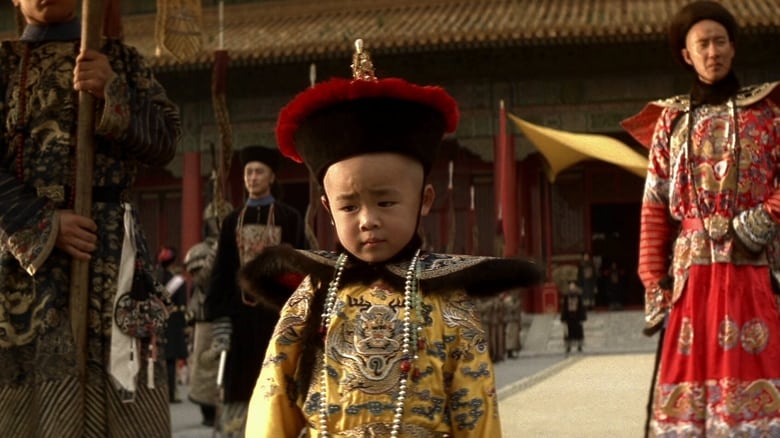Austrian mountaineer Heinrich Harrer journeys to the Himalayas without his family to head an expedition in 1939. But when World War II breaks out, the arrogant Harrer falls into Allied forces' hands as a prisoner of war. He escapes with a fellow detainee and makes his way to Llaso, Tibet, where he meets the 14-year-old Dalai Lama, whose friendship ultimately transforms his outlook on life.


Similar titles
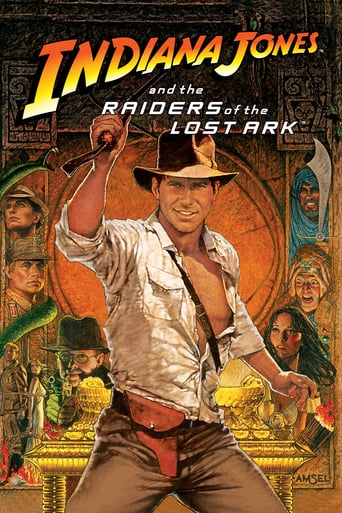





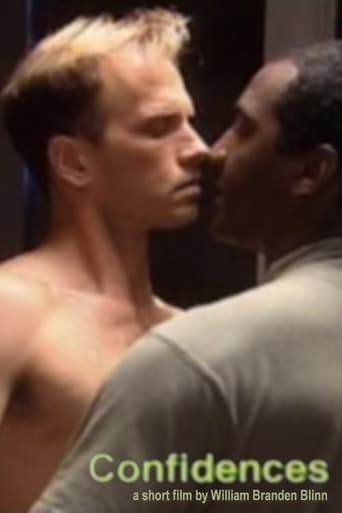



Reviews
not only for the story itself. or for impressive location. but for the values who defines a meeting and a friendship. that defines this beautiful film who, in each scene, preserves the mark of its great director. Brad Pitt does a more than good job and the rhythm of story is perfect to discover a metamorphose of a man looking himself. its great virtue - realistic - touching portrait of Tibet. not a manifesto, not a pledge. but a convincing puzzle about the identity, history, believes and manner to define reality of a land and its people. story to reflect, it is a seductive trip in a mysterious region.and the dose of poetry, characteristic of the films by Annaud, represents the perfect spice for become a memorable experience.
"It is better to travel well than to arrive." - Buddha Based on a true story, Jean-Jacques Annaud's "Seven Years in Tibet" stars Brad Pitt as Austrian mountaineer Heinrich Harrer. As he lived in Tibet between the years 1944 and 1951, Harrer witnessed China's "invasion" of Tibet. This "invasion" forced the 14th Dalai Lama, Tibet's spiritual leader, to flee into India. "Seven Years" was released in 1997, the same year as Martin Scorsese's "Kundun". Both films present idealised portraits of theocratic, late-feudal Tibet. They romanticise Buddhism, fawn over the Himalayas, and pine nostalgically for Tibetan customs and traditions. In the hands of Annaud and Scorsese, the more radical and so interesting aspects of Buddhism are also ignored. Orientalism (portrayals of the East by the West which generally exhibit cultural bias and/or ignorance) typically represents Eastern cultures as inscrutable and mysterious. The West is offered as a bastion of logic, empiricism and science, whilst Eastern cultures are deemed esoteric, mystical and superstitious. In "Seven Years in Tibet", however, Harrer and the Dalai Lama take turns inhabiting the roles of "student" and "teacher". Elsewhere they ridicule each other's fussy customs and traditions, whilst also displaying a shared interest in science, geography and engineering. This is perhaps not surprising. With no holy writs, no deities, and with its interests in scientific enquiry, Buddhism's always been one of the more science-friendly "religions". Annaud's film climaxes with the Chinese army marching into Tibet and massacring Tibetan soldiers. In reality, this battle did not occur. Before his film closes, Annaud also informs us that over a million Tibetans died at the hands of "evil Chinese communists", a cooked number which most serious academics reject. Scenes like this make "Seven Years in Tibet" a covertly political film, the Dalai Llama presented as a saintly figure unjustly torn from his people and so deserving of political reinstatement. That the Dalai Lama leads only one branch of Tibetan Buddhists, and that the only people calling for his "return" are the unelected Tibetan royals who exploited Tibetans via a repressive military-ruled feudal state, are messy realities ignored by Annaud. That the Lamas speak for themselves and not the Tibetan people (just as every group of privileged exiles has turned to the United States to help them return to power, the Dalai Lama received CIA funding for a number of years), that half of Tibet's population were serfs or slaves before the Chinese arrived (the rest were under the autocratic rule of the Tibetan aristocracy), and that Tibetan peasants sided with Communists and aggressively attacked Tibetan-theocratic institutions, is likewise ignored. Indeed, Tibetan peasants were some of the most radicalised Communists in China precisely because they suffered heavily under their previous rulers. This is not to defend the actions of China – certainly the Lamas were capable of reforming Tibet themselves, certainly every populace deserves to be autonomous if it so wishes, certainly China's migration policies affect how Tibetans now vote on issues of independence – but to highlight the fact that Annaud has presented a sanitised portrait of the region.Most big films "about" Buddhism avoid the "tenets" of Buddhism. In "Seven Years in Tibet", Harrer and the Dalai Lama share a number of cute scenes, but philosophy largely remains off-topic. A better director would fully exploit the possibilities that this material lends – why does a character like the Dalai Llama, who renounces the ego, selfhood and private property care about quaint systems of land ownership and leadership? Didn't exile make the Dalai Llama a wiser man? etc – but again Annaud only cares about the superficial. The film costars Jamyang Wangchuk and David Thewlis. 7.5/10 – See "The Last Emperor", "Spring, Summer, Fall, Winter and Spring" and "Into Great Silence".
Maybe it's that fact that I have read the book 3 times, but having read other books and seen the corresponding films this one was particularly bad. It starts with the main character, Heinrich Harrer, played by Brad Pitt. I'd have expected much more of a world class actor. He doesn't behave like an alpinist, nor does he resemble an Austrian in general. However, in defence of Pitt, the screenplay is probably the worst bit of this film and as such probably a difficult task for any actor. When Harrer was invited to the premiere of the film, he mostly praised it, but only because he was a polite and humble man - much to the contrary what Becky Johnston (the screenplay author) made of him. She quite obviously had no idea about alpinism and didn't research Harrer's life. She doesn't even seem to have understood the book itself. The real book certainly wasn't about a lost son (Rolf) or a lost marriage, nor was it about any rivalry between alpinists (Aufschnaiter - Harrer). Harrer and Aufschnaiter survived a physically and mentally extremely exhausting escape over the Himalayas under deadly conditions with very limited gear where most of us probably would have died many times. The endurance of this incredible achievement is totally lost in the film. In Lhasa, it was mostly his awestruck confrontation with a hidden culture, which was quite contrary to the film or simply didn't get through to the audience. Anyone who has seen Werner Herzog's "Rescue Dawn", would agree that an escape story can be done much better with a much lower budget.
Beautifully filmed and well scored, Seven Years in Tibet narrates the story of Austrian mountaineer Heinrich Harrer's journey (both physical and spiritual), his experiences in Lhasa, and his friendship with the child Dalai Lama. Heinrich Harrer's transformation from an emotionally immature and egotistic narcissist to an enlightened and more sensitive man parallels the story of Buddha's path to enlightenment.. Buddhism's underlying doctrine is that of compassion and it offers it's adherents a way of living that will remedy the suffering of the human condition. Harrer's discontent is his suffering. Prior to his journey to Tibet, Harrer's marriage is falling apart and he openly resents Aufschnaiter, the leader of the expedition to the Himalayas. Through his friendship with the Dalai Lama and the detachment from his "European way of life", Harrer learns to leave behind his selfish tendencies. He grows to regret abandoning his pregnant wife in favor of his own ambitions and manages to overcome his jealousy of Aufschnaiter for marrying Pema Lhaki. The wisdom that he gains from the Dalai Lama and Buddhist teachings even drives him to leave his beloved Tibet to return to Austria in order to make amends with his wife and son. As he deals with the challenges of scaling Nanga Parbet (the ninth highest mountain range in the world and the death of dozens of mountaineers before him), as well as the political turmoil of World War 2 Europe, he so too deals with his own demons and, despite not formally converting to Buddhism, adapts the clarity of a Buddhist way of life.
